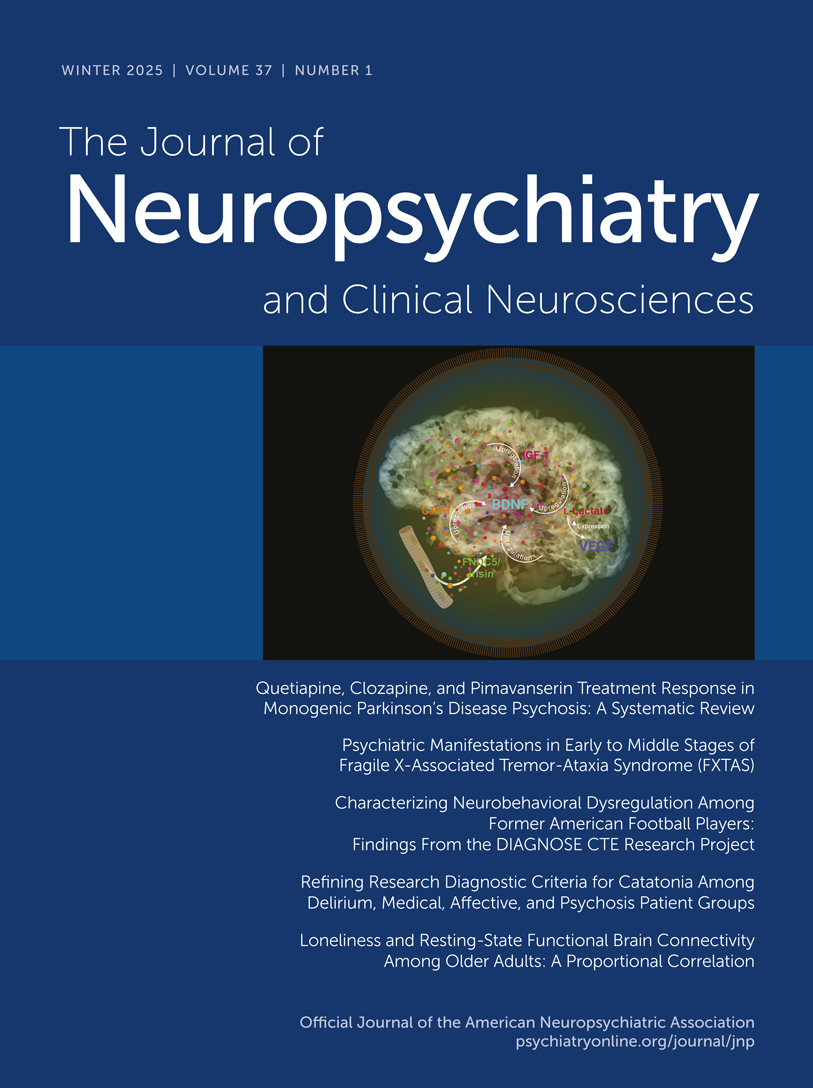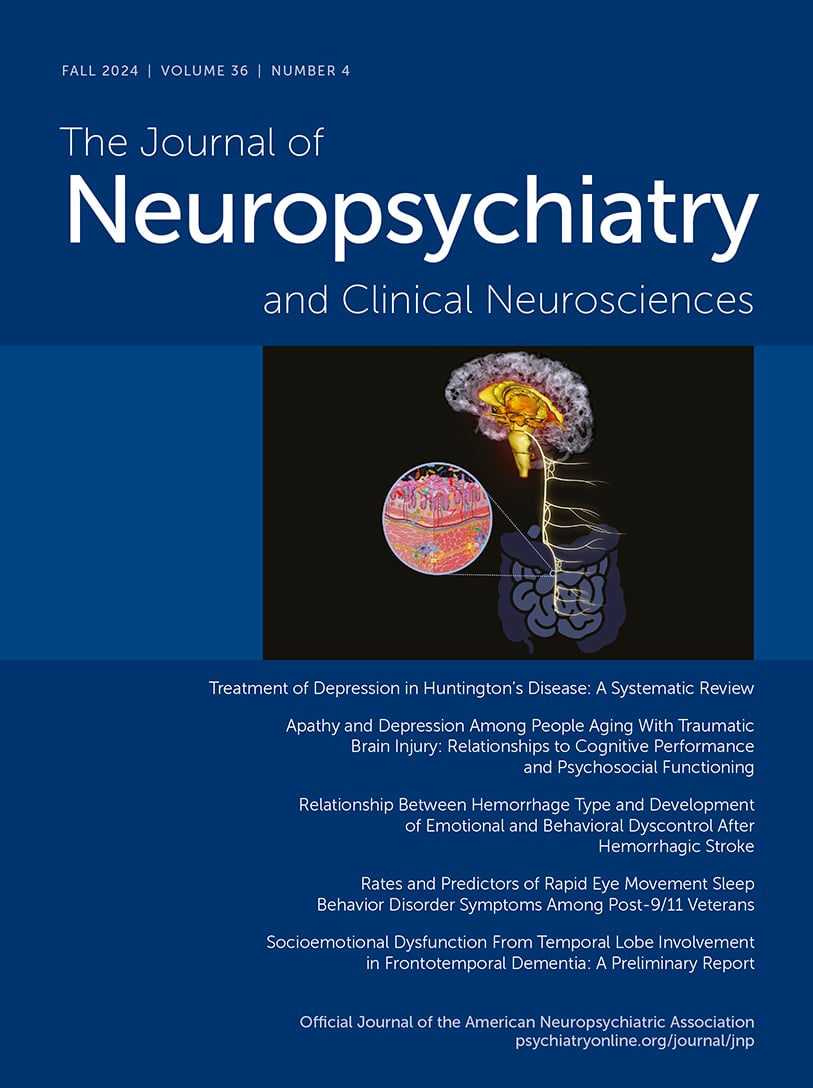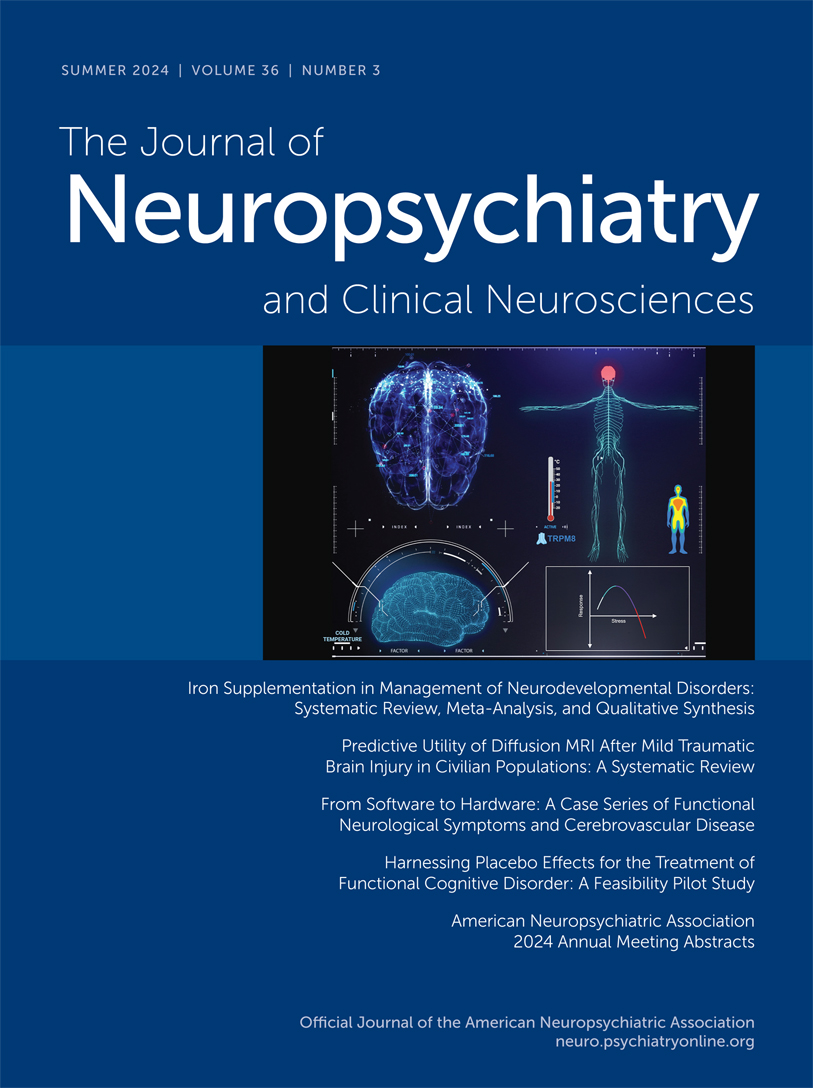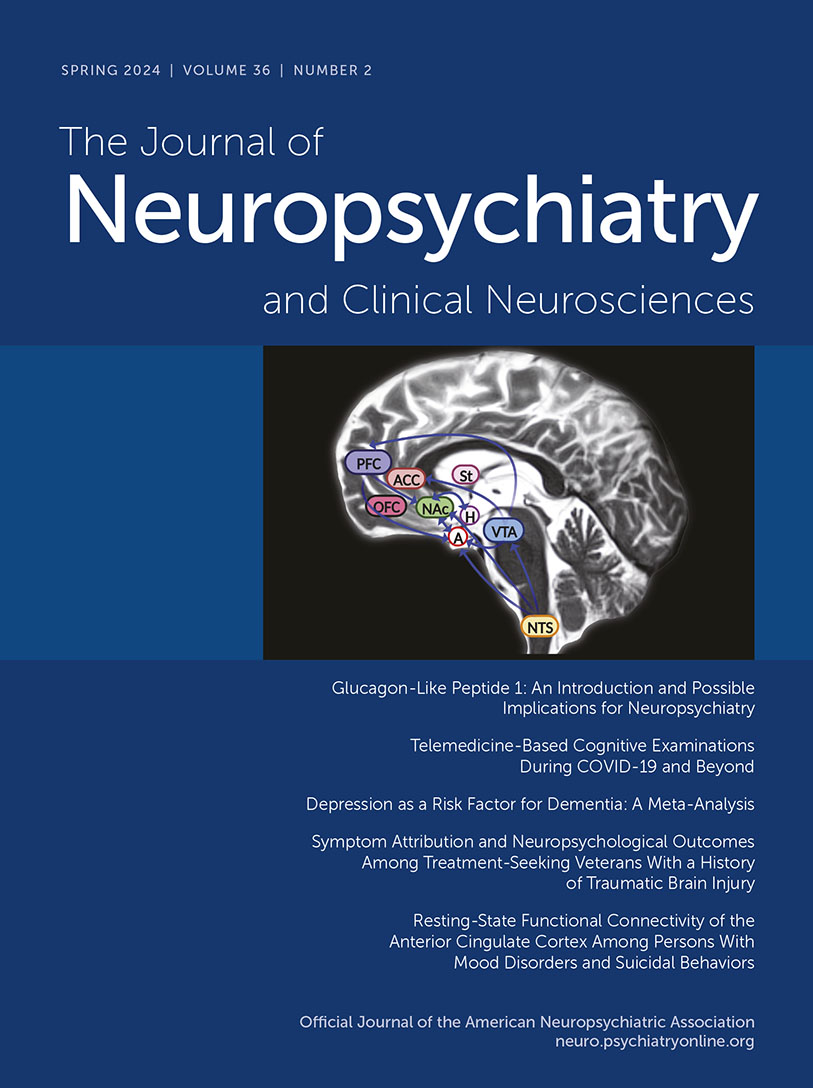The Journal of Neuropsychiatry and Clinical Neurosciences
- Volume 30
- Number 1
- January 2018
Windows to the Brain
Editorials
Special Articles
Publication date: 24 October 2017
Pages7–13Traumatic brain injury (TBI) is often considered to be a risk factor for the later development of neurodegenerative conditions, but some findings do not support a link. Differences in research methods, clinical samples, and limitations encountered when ...
https://doi.org/10.1176/appi.neuropsych.17070145Publication date: 06 September 2017
Pages14–21Alzheimer’s disease (AD) is commonly associated with noncognitive behavioral changes (NCBCs). The authors systematically reviewed whether neuroimaging has helped with understanding the pathophysiology, diagnosis, or management of NCBCs associated with AD, ...
https://doi.org/10.1176/appi.neuropsych.16080155Publication date: 04 August 2017
Pages22–30Changes in health care and disease epidemiology have shifted the attention of neuropsychologists and cognitive neuroscientists from vascular lesions to degenerative diseases or other bilateral brain lesions. This displacement of attention from vascular ...
https://doi.org/10.1176/appi.neuropsych.17010002Regular Articles
Publication date: 24 October 2017
Pages31–37Reading disorder is a recognized feature in primary progressive aphasia (PPA). Surface dyslexia, characterized by regularization errors, is typically seen in the English-speaking semantic variant of PPA (svPPA). However, dyslexic characteristics of other ...
https://doi.org/10.1176/appi.neuropsych.17040081Publication date: 16 May 2017
Pages38–44The aim of this study was to determine the neuropsychiatric profile in a cohort of progressive supranucelar palsy (PSP) patients and their dynamic changes over a follow-up period of 1 year. A total of 59 patients were assessed at baseline, while 25 of ...
https://doi.org/10.1176/appi.neuropsych.17010012Publication date: 23 June 2017
Pages45–50Hyperactivity of the hypothalamic pituitary adrenocortical (HPA) axis is one of the main clinical findings in depression. The HPA axis is interrelated with glucocorticoid signaling via glucocorticoid receptors (GCRs). Thus, functional genetic variants on ...
https://doi.org/10.1176/appi.neuropsych.16120322Education in Behavioral Neurology & Neuropsychiatry
Publication date: 06 September 2017
Pages51–57Delirium (acute confusion) is a serious, common health condition, and it predicts poor outcomes, including greater rates of mortality, institutionalization, prolonged hospitalization, and cognitive impairment. Expedient diagnosis and management are ...
https://doi.org/10.1176/appi.neuropsych.17030065Clinical and Research Reports
Publication date: 23 June 2017
Pages58–65Cotard’s syndrome, a condition in which the patient denies his or her own existence or the existence of body parts, is a rare illness that has been reported in association with several neuropsychiatric diagnoses. The majority of published literature on ...
https://doi.org/10.1176/appi.neuropsych.17010018Publication date: 23 June 2017
Pages66–76The cannabinoid-1 receptor (CB1R) agonist Δ9-tetrahydrocannabinol (THC), the main psychoactive constituent of cannabis, adversely effects working memory performance in humans. The α2A-adrenoceptor (AR) agonist guanfacine improves working memory ...
https://doi.org/10.1176/appi.neuropsych.16120328Publication date: 17 July 2017
Pages77–80Threatening situations lead to observable gait deficits in individuals with Parkinson’s disease (PD) who suffer from high trait anxiety levels. The specific characteristics of gait that are affected appear to be similar to behaviors observed while walking ...
https://doi.org/10.1176/appi.neuropsych.16110298Case Reports
Past Issues
View Issues Archive
Vol. 37 | No. 1

Vol. 36 | No. 4

Vol. 36 | No. 3
